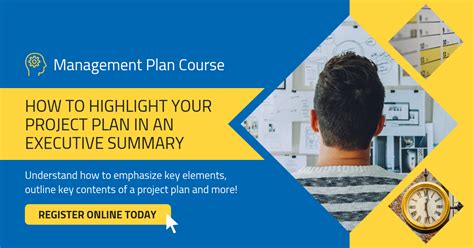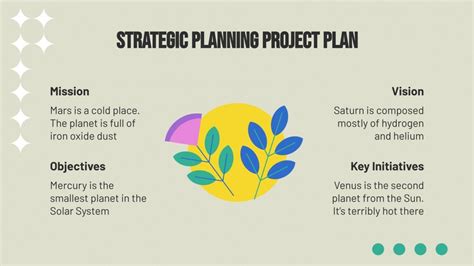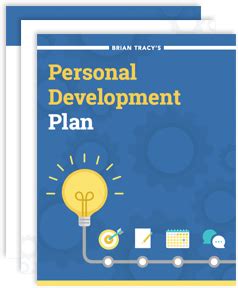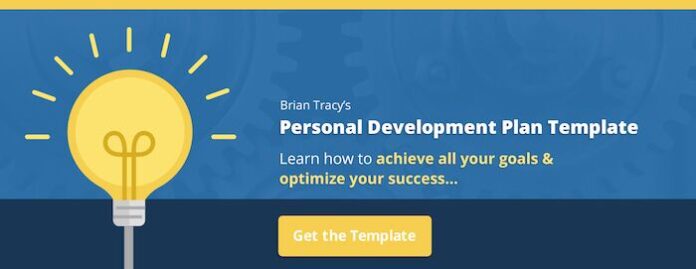In today’s fast-paced world, achieving career success requires more than just professional skills; it demands a balanced and resilient mind. Understanding mind balance—the harmony between mental, emotional, and physical states—plays a crucial role in both personal and professional development. This article explores how cultivating mind balance can enhance focus, decision-making, and productivity, paving the way for career growth. We’ll delve into practical mindfulness practices, effective stress management strategies, and the importance of work-life harmony. Additionally, we’ll discuss the impact of physical health, time management, emotional intelligence, and continuous learning on maintaining mental equilibrium. Join us in discovering how a balanced mind can transform your career and personal life.
Explore this topic in-depth with terylblog.com
1. Understanding Mind Balance: Definition and importance in personal and professional life.
Mind balance refers to the state of mental and emotional equilibrium where an individual can manage stress, maintain focus, and make thoughtful decisions. It involves harmonizing various aspects of life, including emotional stability, cognitive clarity, and physical well-being. Achieving mind balance is essential for personal and professional growth, as it enables individuals to navigate challenges with resilience and adaptability.
In personal life, mind balance contributes to overall well-being, reducing anxiety and enhancing life satisfaction. It allows individuals to approach relationships and daily activities with a clear and composed mindset. Professionally, mind balance enhances focus, productivity, and decision-making abilities. When the mind is balanced, it is easier to set and achieve career goals, handle workplace stress, and engage in creative problem-solving.
Moreover, a balanced mind fosters emotional intelligence, improving communication and collaboration with colleagues. By maintaining mind balance, individuals can better manage the demands of their careers while also nurturing their personal lives, leading to a more fulfilling and successful life overall.

2. Benefits of Mind Balance: Improved focus, decision-making, and productivity.
Mind balance offers several significant benefits that enhance both personal and professional performance. One of the key advantages is improved focus. When the mind is balanced, it can better concentrate on tasks at hand, minimizing distractions and increasing efficiency. This heightened focus allows individuals to complete tasks more effectively and with greater accuracy.
Another benefit is enhanced decision-making. A balanced mind can process information more clearly and objectively, reducing the impact of stress and emotional bias on decision-making. This leads to more thoughtful and strategic choices, both in personal scenarios and professional situations.
Additionally, mind balance boosts productivity. By maintaining mental equilibrium, individuals can manage their workload more effectively, prioritize tasks efficiently, and avoid burnout. This not only leads to a more productive workday but also improves overall job performance and satisfaction.
Overall, achieving mind balance creates a foundation for sustained success and well-being. It empowers individuals to approach their work with clarity, make better decisions, and accomplish their goals more efficiently. Embracing mind balance can thus transform both personal and professional aspects of life, leading to greater achievements and a more fulfilling career.

3. Mindfulness Practices: Techniques like meditation, breathing exercises, and journaling.
Mindfulness practices are essential for achieving and maintaining mind balance. Techniques such as meditation, breathing exercises, and journaling play a pivotal role in enhancing mental clarity and emotional stability.
Meditation helps cultivate a calm and focused mind by encouraging individuals to center their thoughts and reduce stress. Regular meditation practice can lead to improved concentration and emotional resilience.
Breathing exercises, such as deep abdominal breathing or box breathing, are effective tools for managing anxiety and restoring mental equilibrium. These exercises promote relaxation and help regulate the body’s stress response, contributing to a more balanced state of mind.
Journaling is another valuable mindfulness practice that allows individuals to process thoughts and emotions. By writing regularly, people can gain insights into their mental patterns, set goals, and reflect on their experiences, which supports emotional clarity and personal growth.
Incorporating these mindfulness techniques into daily routines fosters a balanced mind, enhancing overall well-being and effectiveness in both personal and professional contexts.

4. Stress Management: Identifying and managing stressors in the workplace.
Effective stress management is crucial for maintaining mind balance, especially in the workplace. Identifying and addressing stressors can significantly impact overall well-being and productivity.
The first step in managing workplace stress is recognizing its sources. Common stressors include high workloads, tight deadlines, interpersonal conflicts, and lack of control over job responsibilities. Once these stressors are identified, individuals can develop strategies to mitigate their effects.
Proactive stress management techniques involve setting realistic goals, prioritizing tasks, and breaking large projects into manageable steps. Time management skills, such as scheduling regular breaks and avoiding multitasking, can also help reduce stress levels.
Additionally, fostering open communication with colleagues and supervisors can alleviate tension and resolve conflicts more effectively. Seeking feedback, discussing concerns, and asking for support when needed are vital for maintaining a positive work environment.
Implementing stress-reduction practices like mindfulness techniques, exercise, and adequate rest also plays a significant role in managing workplace stress. By addressing stressors and incorporating these strategies, individuals can maintain a balanced mind, enhance job satisfaction, and improve overall performance.
5. Work-Life Harmony: Strategies to balance professional responsibilities with personal time.
Achieving work-life harmony involves balancing professional responsibilities with personal time to ensure overall well-being and satisfaction. Implementing effective strategies can help create this balance and prevent burnout.
First, setting clear boundaries between work and personal life is essential. Establish specific work hours and stick to them, avoiding the temptation to check emails or complete work tasks during personal time. Communicate these boundaries to colleagues and supervisors to manage expectations.
Prioritizing tasks and managing time effectively can also aid in achieving work-life harmony. Use tools like to-do lists or digital planners to organize tasks and focus on high-priority items. Delegate or postpone less critical tasks when necessary to avoid overloading your schedule.
Incorporating regular breaks and time off is crucial for maintaining balance. Schedule regular breaks during work to recharge and make time for vacations or personal days to relax and rejuvenate.
Additionally, make time for activities that bring joy and relaxation, such as hobbies, exercise, or spending time with loved ones. This helps create a fulfilling personal life that complements your professional responsibilities.
By applying these strategies, you can achieve a harmonious balance between work and personal life, leading to improved well-being, productivity, and overall satisfaction.
6. Physical Health and Mind Balance: The role of exercise and nutrition in maintaining mental equilibrium.
Physical health plays a crucial role in maintaining mental equilibrium and achieving mind balance. Regular exercise and proper nutrition are fundamental components in supporting both mental and physical well-being.
Exercise is a powerful tool for managing stress and enhancing mood. Engaging in physical activity releases endorphins, which are natural mood lifters that help reduce anxiety and improve overall mental clarity. Regular exercise also promotes better sleep and increases energy levels, contributing to a more balanced state of mind.
Nutrition is equally important in sustaining mental health. A well-balanced diet rich in fruits, vegetables, whole grains, and lean proteins provides essential nutrients that support brain function and emotional stability. Foods high in omega-3 fatty acids, such as fish, and antioxidants, found in berries, can help protect the brain from stress and cognitive decline.
By integrating regular physical activity and a nutritious diet into your routine, you can significantly enhance your mental equilibrium. This holistic approach to health not only supports mind balance but also boosts overall productivity and well-being.
7. Time Management: Prioritizing tasks to reduce overwhelm and enhance efficiency.
Effective time management is essential for reducing overwhelm and enhancing efficiency in both personal and professional life. Prioritizing tasks helps individuals focus on what matters most and manage their workload more effectively.
Start by identifying and categorizing tasks based on their importance and urgency. Use tools like to-do lists or digital planners to organize tasks, and prioritize them using methods such as the Eisenhower Matrix, which divides tasks into categories like urgent, important, non-urgent, and non-important. This approach helps in focusing on high-priority tasks and delegating or deferring less critical ones.
Breaking larger tasks into smaller, manageable steps can also prevent feelings of overwhelm. Set specific, achievable goals for each step and track your progress regularly.
Additionally, allocate dedicated time blocks for each task or project, minimizing distractions and avoiding multitasking. Scheduling regular breaks helps maintain productivity and prevent burnout.
By mastering time management and prioritizing effectively, individuals can enhance their efficiency, reduce stress, and achieve a more balanced and productive lifestyle.
8. Emotional Intelligence: Developing self-awareness and empathy for better workplace relationships.
Emotional intelligence is crucial for fostering positive workplace relationships and achieving mind balance. It involves developing self-awareness and empathy, which are essential for effective communication and collaboration.
Self-awareness is the ability to recognize and understand your own emotions, strengths, and weaknesses. By being aware of your emotional triggers and responses, you can manage your reactions more effectively and maintain a balanced perspective. This awareness allows you to navigate workplace challenges with greater clarity and resilience.
Empathy, the ability to understand and share the feelings of others, enhances interpersonal relationships and promotes a supportive work environment. By practicing empathy, you can better address the needs and concerns of colleagues, leading to improved teamwork and conflict resolution. It helps in building trust and rapport, which are vital for a harmonious and productive workplace.
Developing emotional intelligence involves active listening, open communication, and reflecting on your interactions with others. Engage in regular self-reflection and seek feedback to improve your emotional awareness and empathetic skills. By cultivating these attributes, you can enhance workplace relationships, reduce conflicts, and contribute to a more positive and collaborative work environment, supporting overall career success and personal development.
9. Continuous Learning: Engaging in self-study and skill development to stay adaptable.
Continuous learning is essential for staying adaptable and achieving long-term career success. Engaging in self-study and skill development helps individuals remain relevant in a constantly evolving professional landscape.
Self-study involves actively seeking knowledge and skills beyond formal education. This can include reading industry-related books, taking online courses, or participating in webinars and workshops. By staying informed about the latest trends and advancements, you can enhance your expertise and remain competitive.
Skill development is equally important. Identifying and acquiring new skills relevant to your field can open up new opportunities and improve your ability to tackle diverse challenges. This might involve learning new software, improving communication skills, or gaining certifications.
Regularly investing time in personal and professional growth helps maintain adaptability, allowing you to respond effectively to changes and seize emerging opportunities. By committing to continuous learning, you not only enhance your career prospects but also contribute to your overall personal development and fulfillment.
10. Support Systems: Building a network of colleagues, mentors, and mental health resources.
Building a robust support system is vital for maintaining mind balance and achieving career success. A strong network of colleagues, mentors, and mental health resources provides valuable support, guidance, and encouragement.
Developing relationships with colleagues fosters a collaborative work environment and creates a network of support for tackling challenges and sharing knowledge. Building a diverse network allows for varied perspectives and solutions, enhancing overall effectiveness and job satisfaction.
Mentors play a crucial role in career development. They offer guidance, share experiences, and provide constructive feedback, helping you navigate your career path and overcome obstacles. Regular interactions with mentors can also inspire growth and motivate you to achieve your professional goals.
Additionally, having access to mental health resources, such as counseling services or employee assistance programs, is essential for managing stress and maintaining emotional well-being. These resources offer support during difficult times and promote a healthy work-life balance.
By cultivating a strong support system, you create a foundation for personal and professional growth, ensuring that you have the necessary resources and encouragement to thrive in your career and maintain
Achieving career success is deeply intertwined with maintaining mind balance. By understanding and implementing mindfulness practices, managing stress, balancing work and personal life, and fostering physical health, you can enhance focus, decision-making, and productivity. Embracing emotional intelligence, continuous learning, and building a robust support system further strengthens your journey. Prioritizing these elements creates a solid foundation for personal development and professional growth, leading to a more fulfilling and successful career.
terylblog.com
